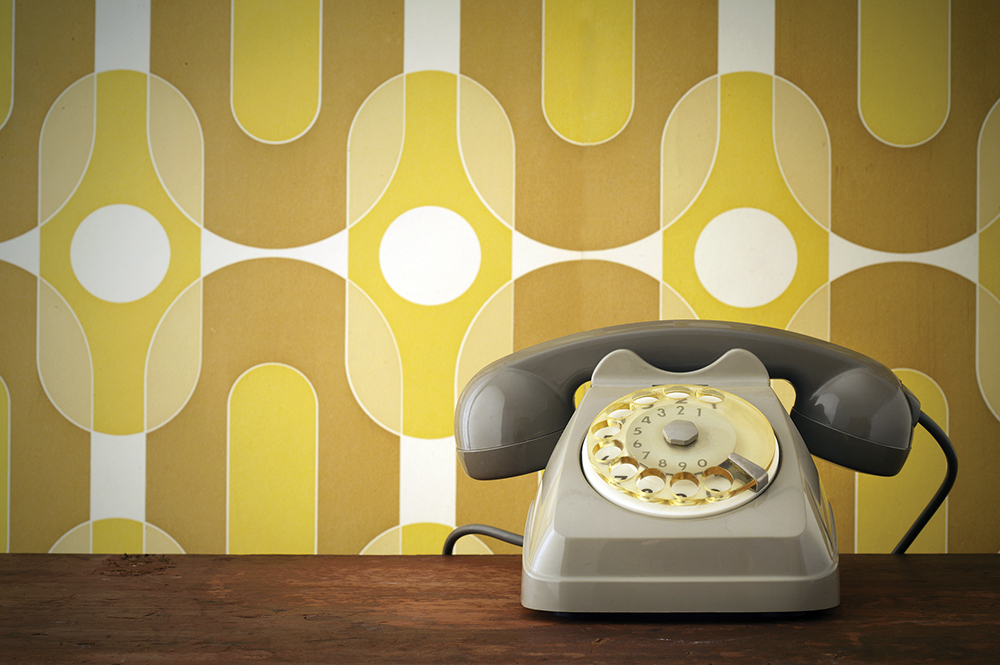Rikki, don’t lose that number
You don’t wanna call nobody else
Send it off in a letter to yourself …
I still remember it: 581-3457. No, that wasn’t Rikki’s number. That was my family’s phone number when I was growing up. In those days, I could tell you the phone numbers of all my close friends, plus those of my grandparents, plus the local pizza joint. I never thought about having to look them up. Everyone had tons of numbers memorized. It was essential. It’s not like you could carry a phone book around with you.
Now? Well, I know my wife’s phone number, mainly because I have to use it in filling out various forms. And I know Jenny’s, of course (867-5309). But I couldn’t begin to tell you my children’s numbers. They’ve all moved around and their area codes are weird now and, well, I don’t have to know their numbers because I can just tell my phone to “call Mary.” This is a good thing. I’ve got four kids and stepkids, meaning I’d have to memorize 40 rando digits with my dwindling brain cells, and who needs that?
Speaking of my brain cells, indulge me please as I ponder for a moment the ancient days of landlines — only we didn’t call them landlines. We called them “telephones.” They were big, clunky plastic things that were plugged into walls or placed in little booths around town. Most families had a single phone shared by everybody, usually in the living room. Later, people began to get “extensions,” so you could get some modicum of privacy, unless your pesky brother in the other room stealthily picked up and listened. College dorms had a single phone in the hallway, shared by every resident living on that floor. You want to sweet talk your girlfriend? Good luck.
Times were tough, I tell ya. If you’re over 40, you can probably relate to much of this. The greatest evolutionary steps of the telephone have happened within our lifetimes.
Remember when voicemail was introduced? What a revelation that was. Everyone left those stupid explicit instructions. “You have reached 901-111-5554, the residence of George and Brenda Caldwell-Williams. We can’t answer the phone right now, but if you’ll leave your name and phone number after the beep, we’ll get back to you as soon as possible. Have a great day!”
You had to listen to that bilge all the way through every time you called before you could leave a message. Kill me. And lots of people did cute or “funny” answering machine messages, like reading the script together or making little jokes. Kill me again. Faster.
And caller ID? What a game changer! I remember with great pleasure the day we got that device on our home phone. That very night our teenage daughter called and said, “Hey, Mom, I’m at Kathryn’s and I think I’m just gonna spend the night out here, okay?” My wife responded: “Huh, that’s interesting. Our new caller ID says you’re at Brad’s house. You get your butt home right now, young lady!” It was so delicious. Good, good times.
Now caller ID, voicemail, cameras, maps, phone books, and the entire collected knowledge of the human race are built into the noisy little computers we carry with us everywhere. Today that Steely Dan song I cited above would be called, “Rikki, Yo Here’s My Digits.” You’d just airdrop her your number and start sending inappropriate texts.
And it’s not just songs that have had to be reinvented. All of modern fiction and screenwriting have changed to accommodate the new reality of constant interconnectedness. Plots involving letter writing? Nah. Heroine driving a car and can’t be reached? Nah. Hero needs to go to the library to look something up and then meets girl of his dreams? Nah.
These sorts of changes aren’t unprecedented, of course. Art and literature have always evolved to accommodate the modifications imposed by humanity’s inventiveness. The World According to Garp and Casablanca beautifully exemplify the era of their creation, and their truths stand the test of time. Bogart standing on a rainy Moroccan tarmac growling, “Here’s looking at you, kid,” over a cell phone just wouldn’t have the same magic.
